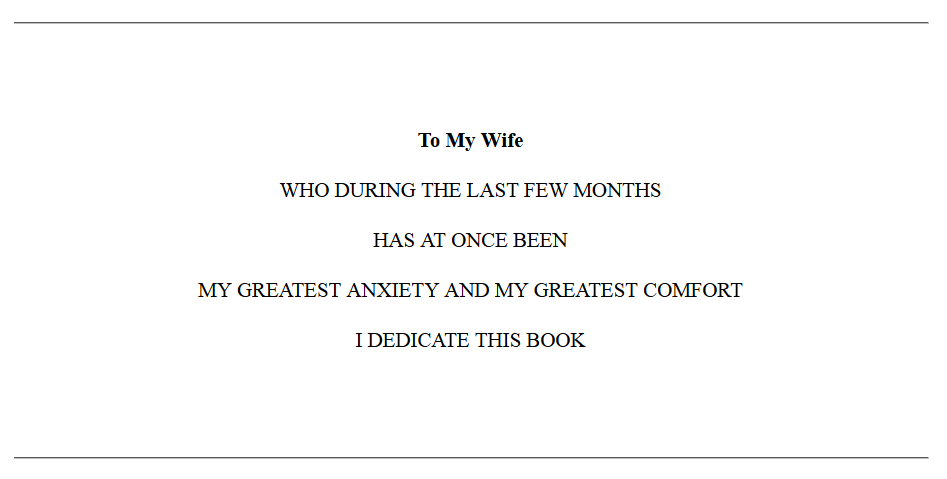Editor’s Note: The following comprises the Preface of Sunshine and Storm in Rhodesia, by Frederick Courteney Selous (published 1896). All spelling in the original.
Preface
It was during the early days of the recent insurrection that I first thought of utilising my spare time by writing some account of what was taking place around me, and these rough notes, written at odd moments during the campaign, I intended to have sent to the Field for publication in that journal, in the form of a series of articles dealing entirely with my own personal experiences. After the disbandment of the Bulawayo Field Force, however, and my own resignation as an officer in that corps, finding that I had leisure to do so, I determined to amplify these notes, and give some account of every skirmish which had taken place between the Colonists and the natives in Matabeleland up to the date of the disbandment of the above-mentioned Force. To this I add a short account of my personal experiences in the country during the months immediately preceding the outbreak of the insurrection, and finding that I had then sufficient material to fill the covers of a small book, I abandoned my original idea of getting what I had written published in weekly numbers, and determined for the third time to launch a book—always about Africa—on the long-suffering British public.
What I have written as it were historically regarding the events which have lately taken place in Matabeleland may, I think, be received as a simple and unadorned statement of fact, for where I have had to go outside my own personal experiences, my information has always been obtained at first hand and checked by the corroborating accounts of others who were also eye-witnesses of the events described. As to any conclusions I may have arrived at from given facts, they may be right or they may be wrong, but at any rate I claim the right to express my opinions frankly and fearlessly as long as they are my honest convictions. It may be said that, as I am a friend of Mr. Cecil Rhodes and of Dr. Jameson, I ought not to have expressed the opinion that it was the removal of the police force from Matabeleland to the Transvaal which gave the natives their opportunity to revolt, since the expression of such an opinion may be held to reflect upon the administration of the Chartered Company. My reply is, that I have written a history, which, to have any value, must be truthful, and that as Dr. Jameson cannot lay claim to infallibility, he was, like other mortals, liable to err. When he left Matabeleland he never dreamt that the removal of the police force would have any more effect upon the Matabele than the disbandment of the police in Mashunaland in 1891 had had upon the natives in that country. This opinion, moreover, must have been shared by the great majority of the inhabitants of Matabeleland, since no remonstrance was made by any public man at the time that the police left Bulawayo. We now know that the removal of the white police force was a mistake; but it is easy to criticise after the event, and as at the time the mistake was made no one in Rhodesia was wise or prescient enough to foresee the possible effect it might have on the natives of Matabeleland, it would be the height of meanness and injustice to hold Dr. Jameson morally responsible for the present insurrection.
Judging from the knowledge which we now possess of the secret history of the rebellion, it appears that the leaders of the movement must long ago have determined to revolt whenever a favourable opportunity occurred, and a rebellion would therefore in all probability have taken place sooner or later; so perhaps it is as well to have had it and got over it at the same time as the rinderpest. The latter plague will have far more lasting effects than the native rising; but when the railway from the south reaches Bulawayo, the country will once again be able to make a fair start, for with the greater knowledge now possessed by the authorities of the native character, the outcome of which will be a complete reorganisation of the native administration, no farther insurrection ought to be possible. For the rest, it is very evident that the Matabele broke out in rebellion because they disliked their position as a conquered people, and imagined that they were strong enough to throw off the yoke of their conquerors. But I fail to see that the fact that they have rebelled is any more an indictment against the general principles of the government of the Chartered Company, than were the numerous rebellions which have taken place from time to time in the Cape Colony an indictment against the wisdom and justice of the Imperial Government.
Now that the rebellion has occurred, it will very possibly be said that it was brought about by systematic brutality to the natives on the part of the white men in the country. Such an allegation, however, cannot be supported by facts, for, as the records of the magistrates’ court will prove, the present Government has done all that any other civilised Government could have done to protect the natives from ill-treatment at the hands of irresponsible individuals; and as a native commissioner thoroughly conversant with the Matabele language, and well in touch with the people, was stationed in each of the districts into which the country has been divided, it cannot be urged that the natives had no opportunity of making their grievances known. Grievances of course they had, the chief of which, doubtless, was the loss of their independence as a nation, and the fact that they found themselves treated as a conquered people lately engaged in hostilities, who had only been permitted to return to the country from which they had been driven at the time of the first war under certain conditions, one of which was that the indunas should, through the medium of the native commissioners, supply miners and farmers with native labour—all the able-bodied young men in the country being required to work for a certain number of months per annum at a fixed rate of pay. This rate of pay was fixed at 10s. a month with food; but as a matter of fact mining work was almost always paid much more highly, as much as 30s. a month with food being often given for unskilled labour, whilst the managers of mines made it their business to see that the boys in their Company’s employ were well treated, and cruel treatment by individuals was, I do not hesitate to say, the exception to the rule. Owing to the excessive indolence of the people, however, there can be no doubt that the labour regulations were most irksome to them. The indunas grew more and more disinclined to exert their authority in the matter of inducing their people to work when applications were made to them, with the result that native policemen were sent to their kraals to insist on the labour regulations being carried out, and these policemen, I fear, sometimes exceeded their duties, and used their position to tyrannise over the people.
I remember well that when Umlugulu visited me for the first time, after I had taken up my residence on Essexvale, he complained bitterly of the high-handed manner in which the “Ama Policey Minyama,” the “Black Police,” behaved to him and his people. “I have no complaints to make,” he said, “against the white policemen; but the black police, wa duba, wa duba sebele—they give me trouble; they really give me trouble.” I myself complained to the acting Administrator, Mr. Duncan, concerning the inconsiderate manner in which it appeared to me that the labour regulations were sometimes carried out, and I was led to believe that the whole question of native administration would shortly be gone into by the Government, and all grievances remedied.
The cattle question I have dealt with in the course of my story. It was never sagaciously handled, and its mismanagement probably caused more discontent against the Chartered Company’s rule amongst the pure-blooded Matabele, or Abenzantsi, than anything else, whilst the irritation excited by the regulation exacting a certain amount of paid labour yearly from every able-bodied man produced a feeling of bitterness and discontent throughout the other classes of the community, which made them ripe for rebellion when they were called to arms by the leaders of the insurrection. However, although no impartial critic can deny that the confiscation of so large a number of their cattle, and more especially the manner in which that confiscation was carried out, was impolitic if not ungenerous; whilst the manner in which the labour regulations were enforced was sometimes calculated to provoke serious discontent; yet neither of these causes, nor both combined, would, in my opinion, have been sufficient to induce the mass of the population to break out in rebellion had there not been amongst them many men who, having once belonged to the ruling class in the country, were so dissatisfied at their loss of position and power under the white man’s rule, that they had determined to regain their independence as a nation, or to attempt to do so, on the first favourable opportunity which offered. The rebellion was not the spontaneous act of the mass of the people goaded to desperation by an insupportable tyranny. It was a drama into which they were surprised, and in many cases dragged against their better judgment, by a few leading spirits, who planned and carried out the first murders and utilised the Makalaka Umlimo, as a prophet.
To show that neither the cattle nor the labour questions were the only causes of the rebellion, I may mention that on Mr. Arthur Rhodes’ block of farms on the Impembisi river, extending to some 50,000 acres, there was a considerable native population which had been altogether exempted from the general labour regulations—although required to supply Mr. Arthur Rhodes himself with any labour necessary on the farm for agricultural purposes; whilst there had been distributed amongst them 1600 head of cattle, which they held, in addition to their own, on exactly the same terms on which they had been formerly accustomed to tend cattle for Lo Bengula. Now here was a population living, one would have thought, in a state of the most absolute contentment—for they were receiving the full benefit of the milk from a far larger number of cattle than they had ever had to look after in Lo Bengula’s time; had been allowed to build their kraals wherever they thought fit, make use of whatever land they desired for cultivation, and in fact to lead their own life in their own way undisturbed by any one, for the number of boys who came voluntarily to ask for employment was far in excess of what was required for agricultural work on the estate. And yet, when the rebellion broke out, these people to a man (always excepting Captain Fynn’s Delagoa Bay boy) joined the insurgents, and not only burnt down Mr. Arthur Rhodes’ homestead and swept off all his cattle, but murdered Mr. Edwards the surveyor, who happened to be working in the neighbourhood; against whom they could have had no personal animus, as he was a complete stranger to them. Then, again, if any one had heard the natives living in the villages close round my homestead on Essexvale singing and dancing as they were wont to do on every moonlight night, he could not have maintained that they appeared to be weighed down by a sense of injustice and oppression, or, in fact, that they were anything but joyous and happy. It is very difficult to understand the workings of a Kafir’s mind, as any one must admit who has lived long amongst natives, but the fact that the Matabele broke out into rebellion against the Government of the Chartered Company, appears to me to be no proof of any special iniquity per se on the part of that Government, since history has shown us, that wherever a savage race, entirely unaccustomed to order and restraint, has been conquered by a highly civilised people, who have forthwith essayed to govern that savage race as humanely as possible, but after all in their own interests rather than in the interests of the conquered people, a rebellion against the more intelligent ruling class has been the result; for the ways of the civilised man are not the ways of the savage, who, there can be no doubt, would rather put up with all the ills from which we consider we have freed him, than be subject to the restraints of a settled form of Government. Practically, he says “hang your Pax Britanica“; give me the good old times of superstition and bloodshed; then, even if I did not know the day nor the hour when I might be “smelt out” as a witch, and forthwith knocked on the head, at any rate I could have basked in the sun until my time came; and then, too, when the “impi” went forth, what glorious times I had, and how I revelled in blood and loot!
As to any general charges of systematic injustice and cruelty towards the natives, which may and will now be made by the personal enemies of Mr. Rhodes, against the Chartered Company, with the object of providing a justification for the brutal murders of European women and children which have been committed during the present rebellion, I would point out that such charges come rather late in the day, for the natives of Matabeleland had lived for over two years in an apparently fairly contented condition under the Government of the Company before the rebellion broke out, and during the whole of that time there were four missionaries belonging to the London Missionary Society, besides some people called “seventh-day adventists”—whatever that may mean, for I have not the least idea myself—all of whom were working amongst, and avowedly for the benefit of, the natives. Now, if systematic cruelty, injustice, and oppression of the Matabele by the Government of the Chartered Company had been going on constantly for over two years, it must have been very well known to all these men, and it was their duty not only to have protested against such gross misgovernment to the Company’s Administrator in Bulawayo, but also to have reported such abuses to their Directors in England. No such allegations, however, were ever made prior to the rebellion, and should any be now brought forward they ought to be received with the very gravest suspicion. The fact, too, remains that although individual acts of brutality have occurred in Matabeleland—as they have done in every other country in the world—during the last two years, and although mistakes have been made, especially in dealing with the cattle and labour questions, yet, on the whole, the conditions under which the natives in that territory were living, were such that no one resident in the country, whether missionary or miner, imagined before the rebellion broke out that there could be any deep-seated discontent amongst them. That the government of the natives has been all that was desirable from their point of view I do not say, as it is my opinion that, when a black man’s country has been conquered by Europeans, the laws by which that country will be subsequently governed will be made in the interests of the whites, and some of them will be very unpalatable to the conquered race, however just and equitable they may seem to their rulers. We Europeans make the mistake of thinking that, when we free a tribe of savages from what we consider a most oppressive and tyrannical form of government, substituting in its place an orderly rule, under which every man’s life and property is protected and witch-doctors are not recognised, we ought to earn their gratitude; but the fact is we invariably fail to do so, as the present insurrection, as well as all the many rebellions by the natives of the Cape Colony against the rule of the Imperial Government has shown. Yet, as in the Cape Colony, so also will it be in Matabeleland. The savages will discover the uselessness of rebelling against the white man, and as time goes on will become more reconciled to the ways of their conquerors; that is, if their grievances are inquired into and as far as possible remedied, as I have every hope and belief that they will be as soon as the present rebellion has come to an end; for not until mutual confidence has again been restored between the whites and the blacks can Rhodesia prosper. From the black man’s point of view the white man is probably not necessary as a factor in the prosperity of the country. He could get along very well without him. Unfortunately we cannot manage without the black man; he is absolutely necessary for the development of the country on the white man’s lines. But a sulky, rebellious black man, only held in subjection by fear, is both a useless and dangerous personality, and, therefore, the dictates of policy will be at one with the promptings of humanity, in demanding that the natives of Matabeleland shall be governed both kindly and justly as well as firmly.
One word more. In the following pages I have given descriptions of many barbarous deeds which have lately been committed in Matabeleland. I have hidden nothing, but have told the naked truth, and related not only how white men, women, and children were lately murdered, and their senseless bodies afterwards cruelly mutilated by black men, but also how, subsequently, black men were shot down pitilessly by the whites, no mercy being shown or quarter given them by the outraged colonists. By those who seek it, matter will doubtless be found in some of my stories on which to found imputations against the colonists of Rhodesia, who will be held up to execration for the “slaughter” of “poor natives”; the insinuation being that the “poor natives” were ruthlessly killed, with little or no provocation, in order to gratify the lust for blood, which certain people in England appear to think takes possession of their countrymen whenever they set foot on African soil. But by the great mass of the English-speaking race I feel sure that the conduct of their kith and kin in Matabeleland during the late rebellion will not be too harshly judged. It will be remembered that they were the avengers of the women and children of their own colour, who had but lately been so mercilessly slain, and that, fighting as they were against hordes of savages eager to spill the life-blood of every white man in Rhodesia, savages in whose vocabulary no such words as pity or mercy are to be found, nothing else could be expected than that in the hour of victory no quarter should be given to the murderous foe. It is as unfair as it is ridiculous to talk of the “slaughter” of natives who, having come with arms in their hands, not only to kill you, but your wife and child also, find they have reckoned without their host, and are themselves discomfited and shot down by their would-be victims. Now, possibly, there might be found in England a philanthropist so meek and good that, were he suddenly confronted by a burglar who told him plainly that he meant to kill him and walk into his house, he would reply, although he carried a loaded revolver in his hand, “Kill me and walk on, for it would be against my creed and conscience to sully my hands with the slaughter of so fine a specimen of the human race as yourself.” I do not say that so noble a character really exists within the four seas of Britain, but if he does, I suppose he ought to be looked for amongst the ranks of those who have been loudest in their condemnation of the British settlers in Rhodesia, and who thereby arrogate to themselves the possession of a nobility of nature to which ordinary mortals cannot hope to attain. For the sake of example, therefore, let us say that such a man does exist, and that he is none other than the editor of Truth, Mr. Henry Labouchere. Well, granted then that Mr. Labouchere—the man whom, for the sake of example, I have endowed with such a noble nature—would be prompted to sacrifice his own life rather than sully his soul with the killing of a burglar, would he go yet farther and still spare the robber’s life if he knew that, after he himself had been killed, his wife and child would also be put to death? I cannot believe that he would, but imagine rather that he would shoot as straight as possible to prevent such a catastrophe, and I for one would wish that in such a special case his practice might be better than his usual preaching.
Now the settlers in Rhodesia, on those occasions when they have been accused of slaughtering the natives, have only taken the same course as I think would have been adopted by the great-souled philanthropist, whom I hope I am not wronging by imagining that he would steel his heart to take the life of a burglar, if for no other reason than to save the lives of those dear to him; and therefore I would ask my readers not to judge too harshly of the deeds of the colonists which I have recounted in the following pages, but to remember, when judging of their actions, the terrible provocation which they had received. It may be that I have here and there shown a very strong racial feeling against the black man; but it must be remembered that my story has been written in the midst of all the horrors of a native rebellion, that I have seen many gruesome sights, and have with my own hands collected together the broken skulls of murdered women and children—Dutch and English—in order to give them Christian burial. Thus I have sometimes written under the influence of strong emotions, making too little allowance possibly for the black man smarting under what he perhaps had some reason to consider the arrogance and injustice of his white conquerors. However, my opinions after all are of little value, being those of a single individual; but I trust that whoever may take the trouble to read my narrative will accept my facts, and believe that the account I have written of events which have lately occurred in Matabeleland is a true and unvarnished one.
THE AUTHOR.
Bulawayo, 21st August 1896.










